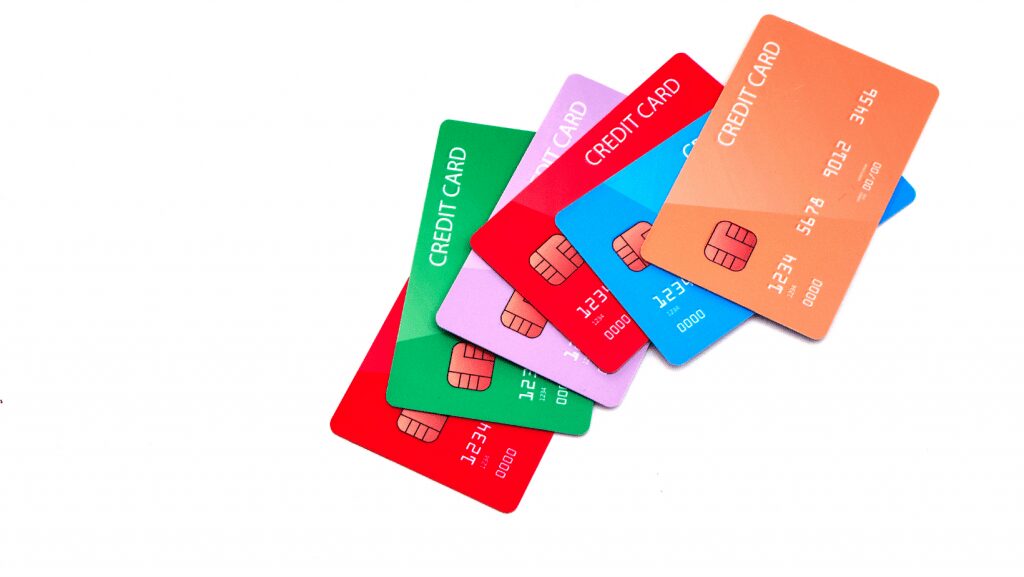Understanding Bitcoin Private Keys: A Comprehensive Guide in 2025
Table of Contents
Bitcoin, the world’s leading cryptocurrency, relies on the concept of private key cryptography to ensure the security and ownership of digital assets. In this article, we will delve into the fascinating world of private keys, exploring their significance, generation, and protection. Whether you’re a novice or an experienced cryptocurrency enthusiast, understanding private keys is crucial for safeguarding your Bitcoin investments.

What is a Private Key?
An alphanumeric code known as a crypto private key is employed in cryptography to validate transactions and establish ownership of cryptocurrency assets. A private key is a crucial element in the world of cryptocurrencies like Bitcoin that enables users to securely access and manage their crypto money. A public key and a private key are given to a person when they acquire cryptocurrency. The private key, which is often a string of letters and numbers, must be kept secret and secure while the public key, which functions like an email address, can be shared with others to receive payments. The private key serves as a password to open the digital safe containing the user’s Bitcoin.
What is Private Key Cryptography?
Private key cryptography, also known as asymmetric cryptography, is a cryptographic system that uses a pair of mathematically related keys: a private key and a public key. The private key is kept secret and known only to the owner, while the public key is freely shared. These keys are used in various cryptographic operations, including encryption, decryption, digital signatures, and secure communication. Private key cryptography provides a secure and efficient way to ensure confidentiality, integrity, and authentication in digital transactions.
How to Obtain a Private Key from a Bitcoin Wallet?
To obtain a private key from a Bitcoin wallet, you typically need to access the wallet’s settings or export options provided by the wallet software. The exact method may vary depending on the wallet you are using. In general, you should look for options that allow you to export or display the private key associated with a specific Bitcoin address within your wallet. It’s important to exercise caution and ensure you follow the wallet provider’s instructions to maintain the security of your private key.
Also read: Know about the cryptocurrency scams
Private Key vs. Public Key Encryption
Private key encryption, or symmetric encryption, uses the same key for both encryption and decryption. The key must be kept secret between the communicating parties to ensure the confidentiality of the message. In contrast, public key encryption, or asymmetric encryption, uses a pair of mathematically related keys: a private key and a public key. The private key is kept secret, while the public key is freely shared. The public key is used to encrypt the message, which can only be decrypted using the corresponding private key. Public key encryption allows secure communication between parties without needing to exchange a shared secret key in advance.
How do hackers hack Bitcoin’s private keys?
Hacking Bitcoin private keys is a complex and challenging task. While it is theoretically possible for hackers to exploit vulnerabilities in software, hardware, or human behavior to gain unauthorized access to private keys, it is highly unlikely for a properly secured Bitcoin private key to be hacked. Security best practices, such as using strong encryption, following secure key storage methods, and implementing multi-factor authentication, significantly reduce the risk of private key hacking. It is crucial to use reputable wallets and employ robust security measures to protect against potential hacking attempts.
Is there any way to get my private key of Bitcoin in the blockchain?
The private key associated with a Bitcoin address in the blockchain is not publicly accessible or retrievable by default. In a properly secured blockchain wallet, the private key is known only to the wallet owner and is stored securely within the wallet software or device. It is crucial to keep your private key confidential and protected to maintain control over your Bitcoin funds.
How can I generate a private key from Coinbase for Bitcoin?
Coinbase, a popular cryptocurrency exchange, typically generates and manages private keys on behalf of its users. As a user, you do not have direct access to the private key associated with your Coinbase account. Instead, Coinbase provides a secure platform that allows you to access and manage your Bitcoin funds without directly handling the private key. It is important to follow Coinbase’s security protocols and enable additional security features such as two-factor authentication to protect your account.
How do you get a private key in Binance?
Similar to Coinbase, Binance, a major cryptocurrency exchange, manages the private keys associated with your Binance account on your behalf. As a user, you do not have direct access to the private key of your Binance account. Binance provides a secure platform for trading and storing cryptocurrencies, and they employ various security measures to protect user accounts and funds. It is recommended to enable the available security features, such as two-factor authentication, to enhance the security of your Binance account.
Is it possible for someone to guess a private key to a Bitcoin wallet and steal the coins?
Theoretically, it is possible for someone to guess a private key to a Bitcoin wallet. However, due to the enormous number of possible private key combinations, the probability of successfully guessing a valid private key is astronomically low. Bitcoin private keys are typically generated using high-quality cryptographic algorithms, making it extremely difficult for anyone to guess a private key and gain unauthorized access to the associated Bitcoin wallet. The security of Bitcoin wallets relies on the strength of the private key and the encryption algorithms used.
I have a Bitcoin address, but no private key. How do I generate a private key?
If you have a Bitcoin address, but no private key, it is not possible to generate a private key based solely on the address. Bitcoin addresses are derived from the corresponding private keys through a complex mathematical process. Without the original private key, it is not feasible to generate it from just the address. It is essential to keep backups of your private keys or mnemonic phrases to ensure access to your Bitcoin funds.
Can the private key of a blockchain be cracked?
The private key of a properly secured blockchain, such as Bitcoin’s blockchain, cannot be cracked using currently available technologies. The security of blockchain cryptography relies on robust mathematical algorithms and large key space, making it computationally infeasible to crack a private key through brute force or other traditional methods. However, it is crucial to follow best security practices, such as using strong and unique private keys, to protect against potential vulnerabilities and ensure the security of your blockchain assets.
Best Practices to Ensure the Safeguard of Your Cryptocurrency Private Keys
- Store Private Keys Offline: Keeping your private keys offline, away from internet-connected devices, is one of the most secure ways to protect them. Consider using a hardware wallet, a physical device specifically designed for securely storing cryptocurrency assets.
- Backup and Encrypt: Create backups of your private keys and store them securely in different locations. Additionally, encrypt your private keys using encryption software to add an extra layer of protection.
- Use a Reputable Wallet: Select a reputable cryptocurrency wallet that prioritizes security and provides robust protection for private keys. Research and choose a wallet that has a proven track record of implementing strong security measures.
- Implement Two-Factor Authentication (2FA): Enable 2FA on your cryptocurrency wallet to add an extra layer of security. This ensures that even if someone gains access to your private key, they would still require an additional verification factor to access your funds.
- Regularly Update Software and Patches: Keep your cryptocurrency wallet software up to date with the latest security updates and patches. Updates often include important security fixes that address vulnerabilities and enhance the overall security of the wallet.
- Be Cautious of Phishing Attempts: Stay vigilant against phishing attacks that aim to trick you into revealing your private keys or other sensitive information. Be cautious of suspicious emails, messages, or websites, and verify the authenticity of the sources before providing any personal information.
- Use Strong Passwords: Create strong, unique passwords for your cryptocurrency wallet and avoid reusing passwords across different platforms. A strong password should be lengthy, and include a combination of uppercase and lowercase letters, numbers, and special characters.
- Keep Your Operating System Secure: Ensure that your computer or mobile device’s operating system is up to date with the latest security patches. Regularly update your device’s firmware or software to benefit from the latest security enhancements.
- Educate Yourself on Security Best Practices: Stay informed about the latest security threats and best practices for securing cryptocurrency private keys. Educate yourself on topics such as social engineering, malware, and other common attack vectors to better protect your assets.
- Limit Public Exposure of Your Private Keys: Be cautious about sharing your private keys or storing them in easily accessible digital formats. Minimize the exposure of your private keys to reduce the risk of unauthorized access.
Conclusion:
Private keys are the cornerstone of Bitcoin security, and understanding their importance is crucial for any cryptocurrency investor. By implementing best practices and maintaining a vigilant approach to security, you can safeguard your Bitcoin investments and ensure the integrity of your private keys.
-
EToro Review Of world’s largest social investing community in 2025
eToro is the world’s largest social investing community and a popular and trustworthy investing solution for millions around the world. About e-Toro eToro has created a multi-asset investment platform that is built on social collaboration and investor education: a community where users can connect, share, and learn. eToro maintains its excellent reputation by placing great…
-
What are Crypto Whales and How They Impact the Crypto Market in 2025
The world of cryptocurrencies is a dynamic and ever-evolving landscape, with various participants shaping its course. Among these participants, there are individuals and entities known as “whales” that wield significant influence over the market. In this article, we’ll delve into the concept of cryptocurrency whales, exploring their role, strategies, and impact on the cryptocurrency market….
-
Web3 Games and Blockchain Games 2025: The Future of Gaming
As technology continues to advance, the gaming industry has witnessed a paradigm shift with the emergence of Web3 games and blockchain-based gaming platforms. These innovative games are disrupting the traditional gaming landscape by offering players new opportunities to interact with games in decentralized ways, own in-game assets as non-fungible tokens (NFTs), and even earn money…
-
The Revolutionary Power of Blockchain: Advantages and Applications Across Industries in 2025
Blockchain technology has emerged as a revolutionary force in the digital landscape, transforming industries across the globe. With its decentralized and trustless nature, blockchain presents a wide array of benefits, ranging from enhanced security and transparency to increased efficiency and traceability. This article explores the concept of blockchain, its key advantages, and its applications in…
-
Blockchain and Cryptocurrency Jobs in 2025: Skills and Job Portals
Blockchain technology and cryptocurrencies have experienced significant growth and adoption, leading to a surge in job opportunities within the industry. As organizations across various sectors recognize the potential of blockchain technology, the demand for professionals with blockchain skills continues to rise. In this article, we will explore the skills required for blockchain and cryptocurrency jobs,…
-
How to Recover Lost Funds from Ponzi Schemes and Precautions That Should Be Taken in 2025
Falling victim to a Ponzi scheme can have devastating financial consequences. These fraudulent investment schemes promise high returns and often deceive investors by using funds from new investors to pay earlier ones. Recovering lost funds from Ponzi schemes can be a complex and challenging process. In this article, we will explore strategies for recovering lost…














